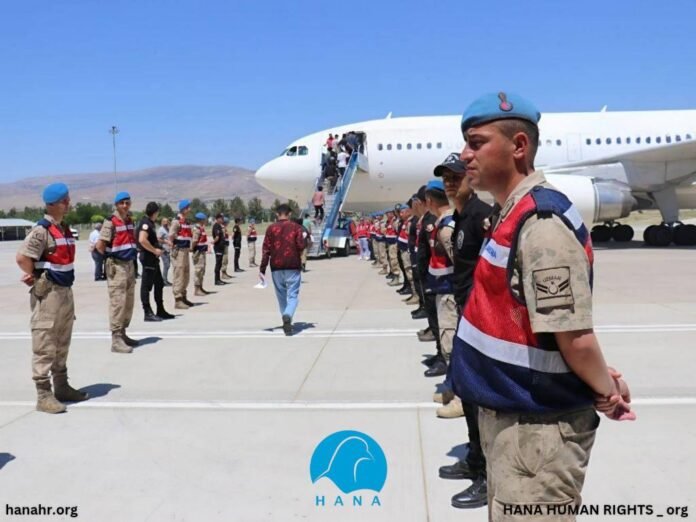Based on research conducted by the Hana Human Rights Organization, the Turkish government has deported and extradited several political refugees to Iran over the past two years. In such cases, the Turkish government has justified these actions by citing the existence of an extradition treaty between Turkey and the Islamic Republic of Iran. Hana Human Rights Organization strongly condemns these extraditions and deportations and calls on the Turkish government to uphold its international human rights obligations regarding political refugees.
In January 2011, Iran and Turkey granted executive validity to a legal cooperation agreement on civil and criminal matters by exchanging official documents. This agreement replaced the 1937 Extradition and Judicial Cooperation Treaty and the 2009 Comprehensive Judicial Cooperation Agreement. According to Article 34 of this agreement, both parties are committed to extraditing individuals found within their territories to the other party for prosecution, trial, or sentence enforcement. However, Paragraph (b) of the first section of Article 35 explicitly exempts individuals accused of political or military crimes from extradition. Despite this provision, in practice, both parties have frequently engaged in such extraditions by interpreting political crimes in various ways.
Under international law, the extradition of political suspects or criminals is not absolutely prohibited. In cases involving impunity or terrorism, extradition is sometimes considered a tool for achieving justice. Nevertheless, states must carefully assess the potential consequences of such extraditions, considering the human rights situation in the country of origin and the charges brought against the individual.
The risk of torture, inhuman punishments, and capital punishment are among the most significant human rights barriers to extradition. In this regard, Article 3 of the United Nations Convention Against Torture (UNCAT) categorically prohibits any extradition that would expose individuals to torture. The absolute prohibition of torture is also enshrined in other human rights treaties, such as Article 7 of the 1966 International Covenant on Civil and Political Rights (ICCPR) and Article 3 of the 1950 European Convention on Human Rights (ECHR). Notably, Turkey is a party to these conventions and is legally obligated to assess the potential consequences of any extradition to the Islamic Republic of Iran.
This obligation has been reaffirmed in multiple cases by the Human Rights Committee overseeing the ICCPR. For instance, in two landmark cases, Nos. 469/1991 and 470/1991, against the Canadian government, the Committee ruled that Canada was obligated to assess the potential consequences of extradition to a country where inhuman punishments are part of the judicial system. Similarly, in a highly significant case, the European Court of Human Rights (ECtHR) found that the extradition of a U.S. national to the state of Virginia by the United Kingdom violated Article 3 of the ECHR. The court held that the extradition would expose the individual to capital punishment, which is part of Virginia’s criminal justice system.
The ECtHR has also ruled that even when an Interpol red notice is issued for an individual, the assessment of the impact of extradition on the accused must take precedence. In April 2019, based on this reasoning, the court blocked the extradition of an Iranian national to Iran by the Bulgarian government.
Given all these considerations, it is evident that the extradition and deportation of political refugees to Iran not only contradicts the extradition treaty between Turkey and Iran but also violates Turkey’s international human rights obligations under the Convention Against Torture, the International Covenant on Civil and Political Rights, and the European Convention on Human Rights.
Therefore, Hana Human Rights Organization strongly urges the Turkish government to uphold its international human rights obligations concerning political refugees.
Hana Human Rights Organization
Vancouver, Canada
February 14, 2025

